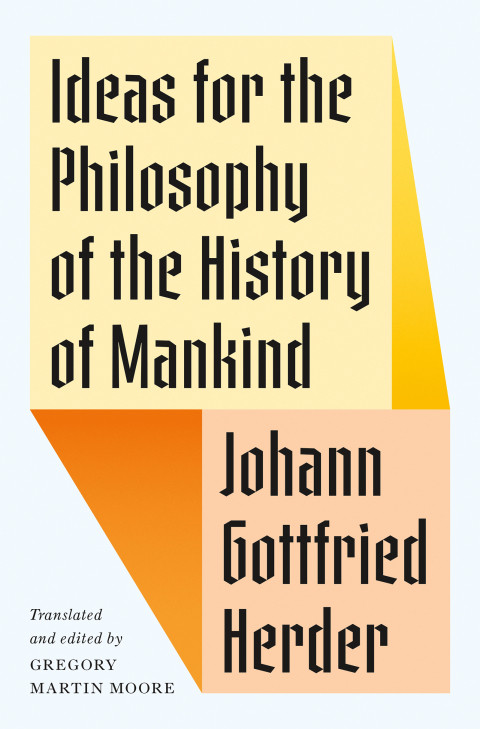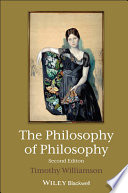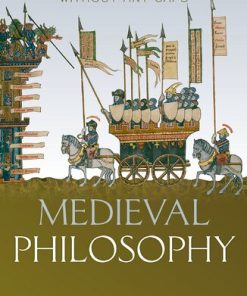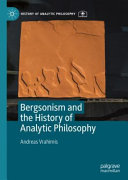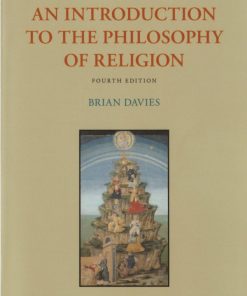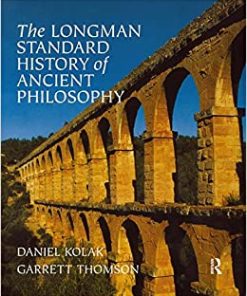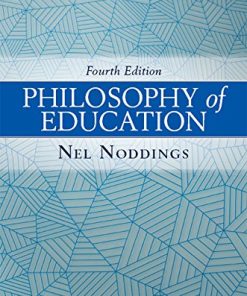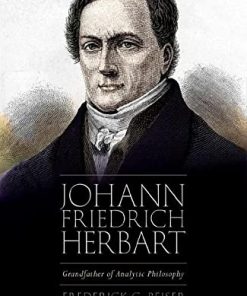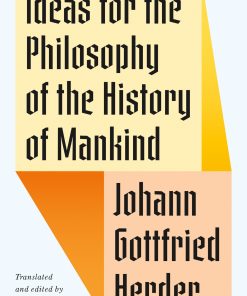Ideas for the Philosophy of the History of Mankind 4th Edition Johann Gottfried Herder
$50.00 Original price was: $50.00.$25.00Current price is: $25.00.
Ideas for the Philosophy of the History of Mankind – Ebook Instant Download/Delivery ISBN(s): 9780691255705,0691255709
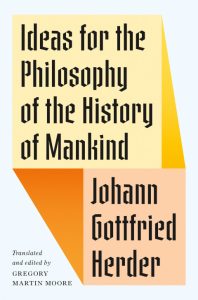
Product details:
One of the most important works of the Enlightenment–in the first new, unabridged English translation in more than two centuries Published in four volumes between 1784 and 1791, Herder’s Ideas for the Philosophy of the History of Mankind is one of the most important works of the Enlightenment–a bold, original, and encyclopedic synthesis of, and contribution to, the era’s philosophical debates over nature, history, culture, and the very meaning of human experience. This is the first new, unabridged English translation of the Ideas in more than two centuries. Gregory Martin Moore’s lively, modern English text, extensive introduction, and commentary bring this neglected masterpiece back to life. The Ideas–which engages with many of the leading thinkers of the eighteenth century, such as Montesquieu, Kant, Gibbon, Ferguson, Buffon, and Rousseau–is many things at once: an inquiry into the unity and purpose of history, a reflection on human nature and the place of humans in the cosmic order, an examination of what was beginning to be called “culture,” and a narrative of cultural progress across time among different peoples. Along the way, Herder considers a dizzying variety of topics, including the formation of the earth and solar system, species change, race, the immortality of the soul, the establishment of society, and the pursuit of happiness. Above all, the Ideas is an anthropology–what Alexander Pope had termed an “essay on man”–pervaded by an appropriately humane spirit. A fresh and much-needed modern translation of the complete Ideas, this volume reintroduces English readers to a classic of Enlightenment thought.
Table contents:
I. Our Earth Is a Star among Other Stars
II. Our Earth Is One of the Middle Planets
III. Our Earth Underwent Many Revolutions before It Became What It Is Now
IV. Our Earth Is a Sphere That Rotates on Its Axis and Moves around the Sun in an Oblique Direction
V. Our Earth Is Enveloped in an Atmosphere and in Contention with Several Celestial Bodies
VI. The Planet That We Inhabit Is a Mountain of Rock That Rises Up over the Surface of the Waters
VII. The Mountain Chains Made Our Two Hemispheres the Scene of the Most Remarkable Variety and Change
Book 2
I. Our Terrestrial Globe Is an Immense Workshop for the Organization of Exceedingly Diverse Beings
II. The Vegetable Kingdom of Our Earth in Relation to Human History
III. The Animal Kingdom in Relation to Human History
IV. Man Is an Intermediate Creature among the Animals of the Earth
Book 3
I. Comparison of the Structure of Plants and Animals in Relation to the Organization of Man
II. Comparison of the Several Organic Forces Operative in the Animal
III. Examples of the Physiological Structure of Several Animals
IV. On the Instincts of Animals
V. The Advancement of Creatures to the Association of Several Ideas and to a Peculiar and Freer Employment of Their Senses and Limbs
VI. Organic Difference between Human Beings and Animals
Book 4
I. Man Is Organized for the Faculty of Reason
II. Retrospect from the Organization of the Human Head to the Inferior Creatures Approximating Its Form
III. Man Is Organized for Finer Senses, for Art, and for Language
IV. Man Is Organized for Finer Instincts and Hence for Freedom
V. Man Is Organized for the Most Delicate Health, yet at the Same Time for the Greatest Durability, and Consequently for His Dispersal across the Earth
VI. Man Is Formed for Humanity and Religion
VII. Man Is Formed for the Hope of Immortality
Book 5
I. A Series of Ascending Forms and Forces Prevails in Our Earthly Creation
II. No Force of Nature Is without an Organ; the Organ, However, Is Never the Force Itself, Which Operates by Means Thereof
III. The Nexus of Forces and Forms Is neither Retrograde nor Stationary, but Progressive
IV. The Realm of Human Organization Is a System of Spiritual Forces
V. Our Humanity Is Only Preparatory, the Bud of a Future Flower
VI. The Present State of Man Is Probably the Connecting Link between Two Worlds
Part Two
Book 6
I. Organization of the Peoples Living Near the North Pole
II. Organization of the Peoples on the Asiatic Ridge of the Earth
III. Organization of the Finely Formed Peoples of This Region
IV. Organization of the African Peoples
V. Organization of Mankind in the Islands of the Tropics
VI. Organization of the Americans
VII. Conclusion
Book 7
I. Though Mankind May Appear in Such Various Forms throughout the World, They Belong to One and the Same Species
II. The One Species of Man Has Acclimatized Itself Everywhere on Earth
III. What Is Climate, and How Does It Affect the Formation of Man’s Body and Soul?
IV. The Genetic Force Is the Parent of All Forms on Earth, Which the Climate Affects Either Adversely or Beneficially
V. Concluding Remarks on the Conflict between Genesis and Climate
Notes
Index
People also search:
ideas for the philosophy of the history of mankind pdf
ideas for the philosophy of history of humanity
ideas about philosophy
what are some philosophical ideas
ideas for a philosophy of nature
fun philosophy topics
major philosophical ideas
ideas for philosophy papers
You may also like…
Politics & Philosophy - General & Miscellaneous Philosophy
Politics & Philosophy - Ancient & Medieval Philosophy
Medieval Philosophy: A History Of Philosophy Without Any Gaps 1st Edition Peter Adamson
Uncategorized
Religion & Spirituality - Religious Studies
An Introduction to the Philosophy of Religion 4th Edition Brian Davies
Uncategorized
Uncategorized
Politics & Philosophy - Philosophical Positions & Movements
Johann Friedrich Herbart: Grandfather of Analytic Philosophy 1st Edition


